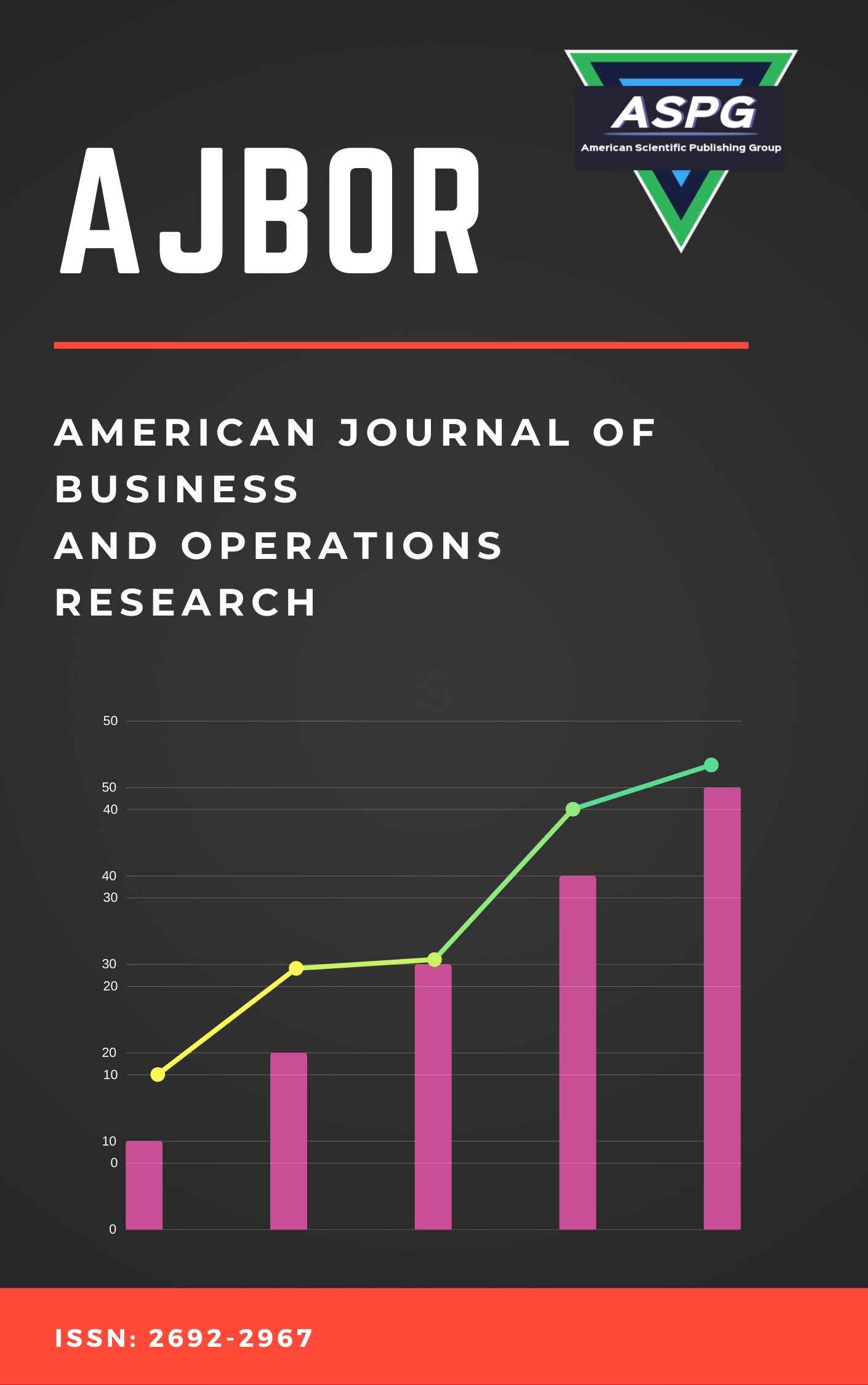

Volume 5 , Issue 1 , PP: 61-71, 2021 | Cite this article as | XML | Html | PDF | Full Length Article
Mahmoud M. Ibrahim 1 * , Mahmoud M. Ismail 2 , Shereen Zaki 3
Doi: https://doi.org/10.54216/AJBOR.050104
This paper presents a comparative study of two optimization techniques, business intelligence (BI) and operations research (OR), for achieving sustainable growth in manufacturing and service industries. The study explores the strengths and weaknesses of both techniques and examines their suitability for addressing sustainability challenges in these industries. The paper also discusses various factors that influence the choice of optimization technique and presents a framework for selecting the most appropriate technique based on the problem domain, data availability, and organizational requirements. The study concludes that both BI and OR have significant potential for improving sustainability in manufacturing and service industries, and their effectiveness depends on the problem domain and organizational context. The paper provides valuable insights for researchers and practitioners interested in leveraging optimization techniques for sustainable growth.
Business Management , Operation Research , Industry 4.0 , Smart Manufacturing
[1]. Lopes de Sousa Jabbour, A. B., Jabbour, C. J. C., Godinho Filho, M., & Roubaud, D. (2018). Industry 4.0 and the circular economy: a proposed research agenda and original roadmap for sustainable operations. Annals of Operations Research, 270, 273-286.
[2]. Kumar, A., Sah, B., Singh, A. R., Deng, Y., He, X., Kumar, P., & Bansal, R. C. (2017). A review of multi criteria decision making (MCDM) towards sustainable renewable energy development. Renewable and Sustainable Energy Reviews, 69, 596-609.
[3]. Liu, Y., & Xu, X. (2017). Industry 4.0 and cloud manufacturing: A comparative analysis. Journal of Manufacturing Science and Engineering, 139(3).
[4]. Gupta, B., Goul, M., & Dinter, B. (2015). Business intelligence and big data in higher education: Status of a multi-year model curriculum development effort for business school undergraduates, MS graduates, and MBAs. Communications of the Association for Information Systems, 36(1), 23.
[5]. Manavalan, E., & Jayakrishna, K. (2019). A review of Internet of Things (IoT) embedded sustainable supply chain for industry 4.0 requirements. Computers & Industrial Engineering, 127, 925-953.
[6]. Sahay, B. S., & Ranjan, J. (2008). Real time business intelligence in supply chain analytics. Information Management & Computer Security.
[7]. Hitt, M. A., Xu, K., & Carnes, C. M. (2016). Resource based theory in operations management research. Journal of operations management, 41, 77-94.
[8]. Maccarthy, B. L., & Liu, J. (1993). Addressing the gap in scheduling research: a review of optimization and heuristic methods in production scheduling. The International Journal of Production Research, 31(1), 59-79.
[9]. Brandenburg, M., Govindan, K., Sarkis, J., & Seuring, S. (2014). Quantitative models for sustainable supply chain management: Developments and directions. European journal of operational research, 233(2), 299-312.
[10]. Bonilla, S. H., Silva, H. R., Terra da Silva, M., Franco Gonçalves, R., & Sacomano, J. B. (2018). Industry 4.0 and sustainability implications: A scenario-based analysis of the impacts and challenges. Sustainability, 10(10), 3740.
[11]. Brax, S. A., & Jonsson, K. (2009). Developing integrated solution offerings for remote diagnostics: A comparative case study of two manufacturers. International journal of operations & production management, 29(5), 539-560.
[12]. Jahangirian, M., Eldabi, T., Naseer, A., Stergioulas, L. K., & Young, T. (2010). Simulation in manufacturing and business: A review. European journal of operational research, 203(1), 1-13.
[13]. Bazmi, A. A., & Zahedi, G. (2011). Sustainable energy systems: Role of optimization modeling techniques in power generation and supply—A review. Renewable and sustainable energy reviews, 15(8), 3480-3500.
[14]. Trieu, V. H. (2017). Getting value from Business Intelligence systems: A review and research agenda. Decision Support Systems, 93, 111-124.
[15]. Aksin, Z., Armony, M., & Mehrotra, V. (2007). The modern call center: A multi‐disciplinary perspective on operations management research. Production and operations management, 16(6), 665-688.
[16]. D'Amato, D., Droste, N., Allen, B., Kettunen, M., Lähtinen, K., Korhonen, J., ... & Toppinen, A. (2017). Green, circular, bio economy: A comparative analysis of sustainability avenues. Journal of cleaner production, 168, 716-734.
[17]. Ray, S., Boyaci, T., & Aras, N. (2005). Optimal prices and trade-in rebates for durable, remanufacturable products. Manufacturing & Service Operations Management, 7(3), 208-228.